- Home
- Sharon Sala
Missing Page 2
Missing Read online
Page 2
“What are his injuries?” one of them asked as Wes gave the doctor up to their care.
“The windows in the office blew inward. I think it’s all glass, but I can’t be sure.”
The doctor moaned as a medic laid him facedown on a cot.
“Easy, sir. You’re going to be all right.”
Wes’s heart was hammering against his ribs as if it were a wild bird trying to get out of a cage. He could already feel the cold sweat running down the middle of his back as he tried to pull himself into a rational state of mind.
“What happened?” he asked.
“Explosion at the commissary,” one of them said as they wheeled the doctor toward an examination room.
The commissary? Oh, Lord.
At that point the room started to tilt and Wes felt himself losing control. In a panic, he hit the wall with his fist, knowing that the pain would force him to focus. He bolted out of the building and into the street just as an ambulance pulled away, heading for the site of the explosion.
At that point, he looked over the rooftops, saw an ominous plume of black smoke and started running. Two blocks later, a trio of non-coms in a jeep picked him up. When they arrived on the scene, a perimeter was being set up.
“I’m sorry, sir, but you can’t go in there,” a young M.P. said.
Wes tried to push past.
“My family…I need to see if—”
“I’m sorry, sir, but no one is allowed inside the perimeter until the fire chief says so.”
Wes took a staggering step backward, then started walking down the line of onlookers without taking his gaze from the fire. The front of the commissary was gone. From what he could see, there appeared to be a very large hole in the pavement right at the loading zone. He didn’t need anyone to tell him what had caused it. He’d seen this time and time again, only not on American soil. This was an American army base. Car bombings didn’t happen here—and yet, from what he could see, it appeared that one had, just the same.
Suddenly he bumped into a car, then stumbled. He turned then, staring down the long rows of cars in parking spaces, and realized he was in the commissary parking lot.
He didn’t see their car. What if their car wasn’t even here? What if Margie was back at the hospital, trying to find him right now? God, please let that be so.
He laughed, and the sound seemed crazy, even to him, as he began walking past the cars on his way out of the lot, but his heart was lighter, his stride easier than it had been seconds earlier.
A secondary explosion suddenly sent fire and debris flying up in the air. Wes dropped, his fingers curling around a gun that wasn’t there, as he rolled beneath a vehicle. It took him a few moments to realize that the vehicle was a red SUV, not military issue, and that he was flat on his belly in the parking lot of the Fort Benning commissary, not in Iraq.
“Damn it all to hell,” he muttered, and crawled to his feet.
Wes was looking around for his hat when he suddenly stopped. The car in the row across from where he was standing…It was blue, but—there were lots of blue cars, lots of the same make and model of blue cars. That wasn’t their car. That couldn’t be their car.
Still, he began moving toward it. Then he saw the tiny ding on the right fender, and bile suddenly rose up the back of his throat. He wouldn’t look at the sticker on the window, because it surely couldn’t have the same number as the one on their car. Then he saw the booster seat in the back and shuddered. It didn’t have to mean anything. This was a young people’s army. Nearly everyone had kids.
He reached for the door handle, telling himself that the door would be locked. Everyone locked their cars when they got out.
But the door opened.
He moaned. Everyone locked their doors except Margie. She was forever forgetting. He looked back toward the commissary and swallowed a sob. This meant that they were in there. He had to go find them. They would share a laugh over the fact that she’d left the doors unlocked again; then he’d take them out to lunch. An early lunch was a good thing.
His legs were shaking as he began to retrace his steps. They appeared to have the fire under control, but that didn’t surprise him. The army was made up of the best of the best.
He walked past a pair of M.P.s, then past a fire truck, unaware that he was walking in water. Heat seared his face, and without thinking, he took off the jacket of his uniform and handed it to a passing soldier.
“Sir! Sir! You can’t go in there,” the soldier called, but Wes kept moving.
The soldier ran after him, but Wes had disappeared into the smoke.
Inside, soldiers were everywhere, helping the firemen with the removal of victims, shoring up walls about to fall, digging under broken ones for survivors. He stumbled on a can of tuna and barely caught himself before he fell. Someone grabbed his arm, but he pulled free and kept moving.
He could hear people crying and someone moaning in obvious pain. Every time he saw survivors, he ran to their sides, pulling them free of debris while praying they would be Margie and his son, but each time his hopes were dashed.
He ran from corner to corner, past overturned displays, while his panic grew. His heart was pounding so hard now that he could hardly breathe. His belly was churning and his legs were weak. The place was big—so damn big. Whose…idea had it been to build a commissary this damned big?
Something loud banged behind him, and he dropped. He was belly down and crawling on the commissary floor when he realized something had just fallen from a shelf. He crawled to his feet, then covered his face with his hands, trying to block out the smell of blood and burning flesh.
Think. He had to think. There had to be something he was forgetting. Something that would tell him where to look.
Then he remembered the peanut butter. Mikey had wanted peanut butter. It was at the back of the store.
He started walking again, this time moving faster, trying to remember exactly where the peanut butter had been shelved. But the shelves were lying one on top of the other, toppled like a child’s line of dominoes.
“Margie! Margie! Where are you, honey? It’s me, Wes! Can you hear me? Just call out my name!”
But no one answered his call.
A few moments later, he turned a corner and saw several soldiers in the act of lifting up some shelves. When he saw a woman’s leg and foot beneath the debris, he realized why. Then his gaze suddenly focused on the shoe, and he stumbled.
“Margie.”
He didn’t know that he’d spoken aloud until one of the soldiers looked up. Wes was bareheaded and without his jacket, so the soldier had no idea of his rank and spoke without thinking.
“Hey, soldier, give us a hand.”
The urgency in the young man’s voice pulled Wes forward, although his mind had gone blank. He stood where they put him, but when the shelf came up, he moaned. The finality of his wife’s condition was impossible to ignore. Her body had been crushed, either from the shock waves of the blast or from the shelves that had pinned her to the floor. It hardly mattered what had dealt the lethal blow. He’d been unable to keep her safe.
He shoved the other soldiers aside as he dropped to his knees. When he started to slide a hand beneath her neck, her head lolled to one side. He wouldn’t let himself think of what that meant, or if she’d suffered before she’d died. He just threw back his head and wailed.
Someone laid a hand on Wes’s shoulder.
“Come on, soldier, you need to let us help.”
But Wes’s hell wasn’t over. As soon as they moved his wife, he found his son.
“Please, God…please don’t do this,” he begged, as he felt just below the Barney Band-Aid in a desperate search for the faintest hint of a pulse.
Nothing.
Then he laid a hand on the middle of Mikey’s chest, as if willing a tiny heart back to life.
With an agonizing cry, he prostrated himself upon their bodies, then pulled them close within his arms. The animal sound that came out of h
is mouth was like nothing the young soldiers had ever heard.
They tried, without success, to get him up, but he wouldn’t let go. They didn’t understand that he hadn’t just lost his family. If he turned them loose, he would lose his last link with sanity, as well. Somehow, despite how careful he’d been, his worst fears had come to fruition.
The enemy had followed him home.
Two
It wasn’t until more men from Search and Rescue arrived on the scene that they were able to pry Wes Holden’s family from his arms.
“Come on, soldier, you need to let us help you,” a medic said, then took Wes by the arm.
But Wes’s voice was shaking as he pushed the man away.
“No, don’t. I have to take care of them,” he said.
When they went to lift Margie onto a stretcher, Wes jerked, then leapt forward.
“Watch out, goddamn it! You’re about to bump her head!” Gently, he slid his hands under the back of her neck and didn’t let go until they’d laid her down.
“There now,” he said softly, then pulled loose a bloody lock of hair that was stuck to her cheek and smoothed it back from her face. “Don’t worry, darling. I won’t let them hurt you.”
The medics looked at one another, then looked away. They’d seen stuff like this before, but it didn’t make it any easier. Trauma did crazy things to people’s minds, and this was a bad one. When they went to remove the child from the debris, Wes lost it. His face was expressionless, but his body was shaking. He kept shifting his weight from one foot to the other; then he started to moan.
The medic closest to Wes was sympathetic to his distress, but these weren’t the only two victims he’d pulled out of the site, and he feared there were more to come.
“Sir, you need to let us do our job.”
“No…no…I’d better do this,” Wes whispered. “He’s my son, and he’s not very good with strangers.”
Tears were running down the medic’s face as he stopped and swiped at his nose.
“Christ almighty. I hate this shit.”
Wes was oblivious to everything but his son as he bent down and picked him up. Then he walked toward the empty stretcher, stumbling through cans of green beans as he went. But when he got there, instead of laying Mikey down, he pulled him close against his chest, and in the midst of smoke and debris, with his cheek against that soft little face, he began to moan.
He couldn’t believe this was happening. God was playing some horrible joke. Wes had sworn an oath to put himself in harm’s way. He was the one who should have died. God knew he couldn’t live in this world without his wife or his son, so if He’d wanted Wes dead, then He should have let him die in Iraq.
Wes rubbed his cheek gently against his little boy’s face, and as he did, he caught a faint whiff of the menthol-scented shaving cream from that morning. Mikey would never grow whiskers, not even as long as a million Christmases from now. He would never learn to read or hit a home run. Every dream, every hope, every plan that they’d had for him, was gone. Within the space of one heartbeat, everything had ended.
The medic touched Wes’s arm.
“Sir? Please. You have to put him down now.”
Wes flinched, then looked up, as if surprised by the sound of someone else’s voice.
The medic pointed to Mikey again.
“Sir?”
Wes tightened his grip.
By now, the medic was begging. “Please.” He pointed to the stretcher.
Wes stared at the empty space on the stretcher and then looked down at the child in his arms. Something fell off a shelf behind them, while outside, someone was calling for help. He blinked, then, for the last time, kissed his little boy’s cheek and put him to bed.
When the medics began to cover the body, Wes grabbed the plastic sheet.
“I’ll do it. He likes to be tucked in.”
Wes bent down and pulled the sheet up to Mikey’s chin, then gently tucked it in around him.
“Night-night, buddy,” Wes whispered, then traced the shape of the Barney Band-Aid on the little boy’s neck, as if making sure it was still firmly in place.
A nearby paratrooper took Wes by the arm and led him away. He didn’t know what to do with him, but he would find someone who would.
Outside, as they were walking past the fire trucks, an officer suddenly came out of the crowd and grabbed Wes by the arm.
“Wes! Are you all right?”
The paratrooper saluted quickly.
“Colonel! Sir!”
“At ease, soldier,” the colonel said. “What’s happened here?”
“You know this man, sir?”
Charlie Frame nodded. “He’s Colonel Wesley Holden, Special Ops.” He gripped Wes’s forearm. “Wes…talk to me, man. Are you hurt?”
But Wes didn’t acknowledge Charlie’s presence, or, for that matter, anything around him. His smoke-streaked face, as well as his unblinking stare, suddenly gave Charlie the willies.
When the paratrooper led Wes to a stack of boxes and sat him down as if he were a child, Charlie followed. Then the soldier turned to Charlie.
“Sir, we just pulled the bodies of a woman and a little boy out from under some debris. From the way he reacted, I think he knew them.”
“Dear God.” Charlie looked around. Maybe it was a mistake. It had to be a mistake. “The bodies…where are they? Where did you take them?”
The soldier pointed to a rapidly growing row of corpses on the nearby grass. Some were covered with plastic sheeting, others with whatever had been available at the time.
Charlie glanced back at Wes, then moved toward the makeshift morgue. Yet even after he got there, he hesitated. It was all he could do to make himself look. Finally he bent over and lifted the covers from the last two bodies on the end. Even while his mind was processing the information, he kept telling himself it had to be a mistake.
But it wasn’t.
It was Margie, just as he’d feared. The last time he’d seen her, she’d been sitting by Wes’s bedside in the hospital with a look of horror on her face. Now her face was barely recognizable. He glanced back at Wes, then looked down again, and this time his gaze slid from the woman’s bloody face to the small boy lying next to her. It was Michael, and except for a tiny smear of blood on his cheek, he looked as if he’d just fallen asleep.
Charlie groaned. Quick tears blurred his vision as he reached out with trembling fingers and pulled the edge of the T-shirt back down over the little child’s belly. The absence of mobility on a little boy who’d been a bundle of energy was almost obscene.
As he stood up, he silently cursed. They’d gone overseas to fight a war against people with a suicidal mind-set so that their loved ones wouldn’t suffer like this. But something had gone wrong. How could this have happened—and on a fucking military base?
He walked back to Wes, then sat down beside him.
“Wes, I’m so sorry, man.”
Wes didn’t answer.
Charlie put his hand on Wes’s back.
“Wes, it’s me, Charlie. I’m here for you, buddy.”
There wasn’t a shred of emotion on Wes’s face. He’d gone to a place in his mind where this hell didn’t exist, and Charlie didn’t know how to get him back. He’d seen plenty of dead people, some he’d even killed himself. He often struggled with that, even knowing that what he’d done had been under orders and in time of war. But this was different. He wanted to lie down and weep.
There was a faint but constant spray of water blowing on Wes’s face. He could feel the dampness but couldn’t seem to focus on where it was coming from. The acrid scent of smoke was still in his nose, and he was only vaguely aware of his surroundings and not sure why he was there.
Added to that was a faint hint of anxiety, as if he needed to be someplace else but couldn’t quite remember why or where it might be.
People were shouting, some even screaming, as they ran past him. Overhead, he could hear the familiar whup-whup sound of a chop
per’s rotor blades. It was a sound common in war, and he thought nothing of it. He was a soldier, well versed in the art of warfare, and for the past two years it was all he’d heard. But as he sat there, he felt something wasn’t right. For some reason, his hands were empty. A soldier should never be without his weapon.
The driver of a nearby ambulance suddenly fired up a siren as he took off toward the hospital. At the sound, the muscles in Wes’s legs began to jerk. His fingers curled into fists.
The sky was black. It shouldn’t be black. And where the hell was his gun?
Mohammed El Faud was an imposter. For the past seventeen months, he’d been living in Columbus, Georgia, under the name of Frank Turner, while working for a civilian contractor at Fort Benning.
Five years ago, when he’d first come to the States, he’d had plastic surgery to disguise his appearance. Now he regularly frequented a beauty shop off base called Lighten Up, where a woman named Estralita applied chemicals to his hair to keep it blond. Then, to keep up the pretense of why he had such dark skin, he paid good money to a tanning salon for a tan that would never fade, and he wore sky-blue contacts to hide the near-black color of his own irises. He was a master at linguistics and had adopted a California surfer accent, but it was only after the American military had begun making inroads into the war in his home country that he’d been given a course of action.
Implementing it had been far easier than he could have imagined. After months of careful planning, he had pierced the infidels in the heart by striking out at the military in two ways. First by attacking them on their own strongly guarded military base, then by targeting not only the soldiers, but their families, as well.
The commissary had been the obvious choice. And it had been so easy. Today he’d driven right up to the loading zone, as he’d done a hundred times before. He’d spoken in jest to a groundskeeper named Jeter, then pretended great concern for a very pregnant woman by loading her groceries for her before calmly walking away. He was two blocks away and safely behind a concrete wall when he detonated the bomb in the truck he’d left behind.
While everyone else was running to assist in recovery, he’d run the other way, retrieved the last part of what he needed to complete his mission and set off toward the blast site.

 Blind Faith
Blind Faith Second Sight
Second Sight Count Your Blessings
Count Your Blessings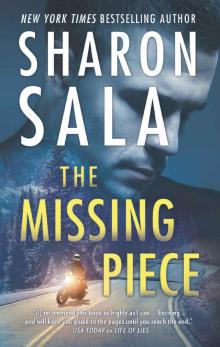 The Missing Piece (The Jigsaw Files)
The Missing Piece (The Jigsaw Files) Bloodlines
Bloodlines Sudden Danger
Sudden Danger King's Ransom
King's Ransom Once in a Blue Moon
Once in a Blue Moon A Rainbow Above Us
A Rainbow Above Us Always a Lady
Always a Lady Touchstone
Touchstone The Whippoorwill Trilogy
The Whippoorwill Trilogy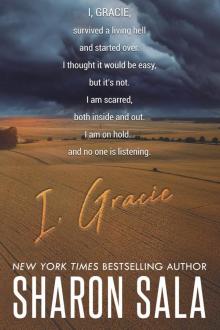 I, Gracie
I, Gracie Honor's Promise
Honor's Promise Rider on Fire
Rider on Fire The Gathering
The Gathering Don't Cry for Me
Don't Cry for Me The Way Back to You
The Way Back to You Swept Aside
Swept Aside Blood Stains
Blood Stains Chance McCall
Chance McCall Out of the Dark
Out of the Dark For Her Eyes Only
For Her Eyes Only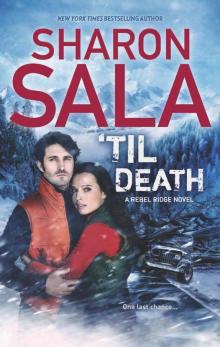 'Til Death (A Rebel Ridge Novel)
'Til Death (A Rebel Ridge Novel) Roman's Heart
Roman's Heart Snowfall
Snowfall Dark Hearts
Dark Hearts Mission: Irresistible
Mission: Irresistible A Place to Call Home
A Place to Call Home Betrayed
Betrayed The Lunatic Detective
The Lunatic Detective The Dove
The Dove Windwalker
Windwalker The Miracle Man
The Miracle Man The Curl Up and Dye
The Curl Up and Dye Familiar Stranger
Familiar Stranger Sweet Baby
Sweet Baby The Boarding House
The Boarding House Bad Penny
Bad Penny Remember Me
Remember Me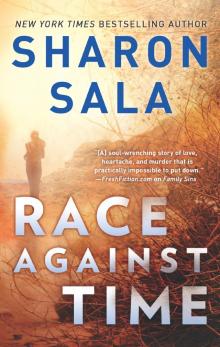 Race Against Time
Race Against Time The Dove (Prophecy Series)
The Dove (Prophecy Series) The Way to Yesterday
The Way to Yesterday The Healer
The Healer The Color of Love
The Color of Love Missing
Missing Next of Kin
Next of Kin A Field of Poppies
A Field of Poppies Cold Hearts
Cold Hearts Deadlier than the Male
Deadlier than the Male Color Me Bad: A Novella
Color Me Bad: A Novella Lunatic Times Two: 4 (The Lunatic Life Series)
Lunatic Times Two: 4 (The Lunatic Life Series)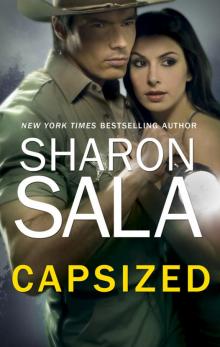 Capsized
Capsized Sympathy Pains
Sympathy Pains ROYAL'S CHILD
ROYAL'S CHILD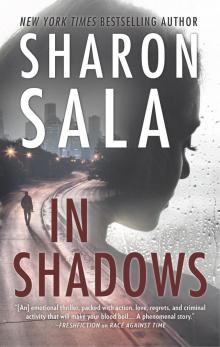 In Shadows
In Shadows 3, 2, 1...Married!
3, 2, 1...Married! Family Sins
Family Sins The Chosen
The Chosen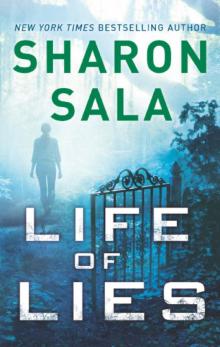 Life of Lies
Life of Lies Lunatic Revenge
Lunatic Revenge When You Call My Name
When You Call My Name I'll Stand By You
I'll Stand By You Saving Jake
Saving Jake Going Gone
Going Gone ANNIE AND THE OUTLAW
ANNIE AND THE OUTLAW Butterfly
Butterfly Cut Throat
Cut Throat Ryder's Wife
Ryder's Wife The Hen House
The Hen House Amber by Night
Amber by Night The Amen Trail
The Amen Trail Mimosa Grove
Mimosa Grove Dark Water
Dark Water Wild Hearts
Wild Hearts Blood Trails
Blood Trails The Warrior
The Warrior Shades of a Desperado
Shades of a Desperado Going Twice
Going Twice A Piece of My Heart
A Piece of My Heart You and Only You
You and Only You Nine Lives
Nine Lives Whippoorwill
Whippoorwill